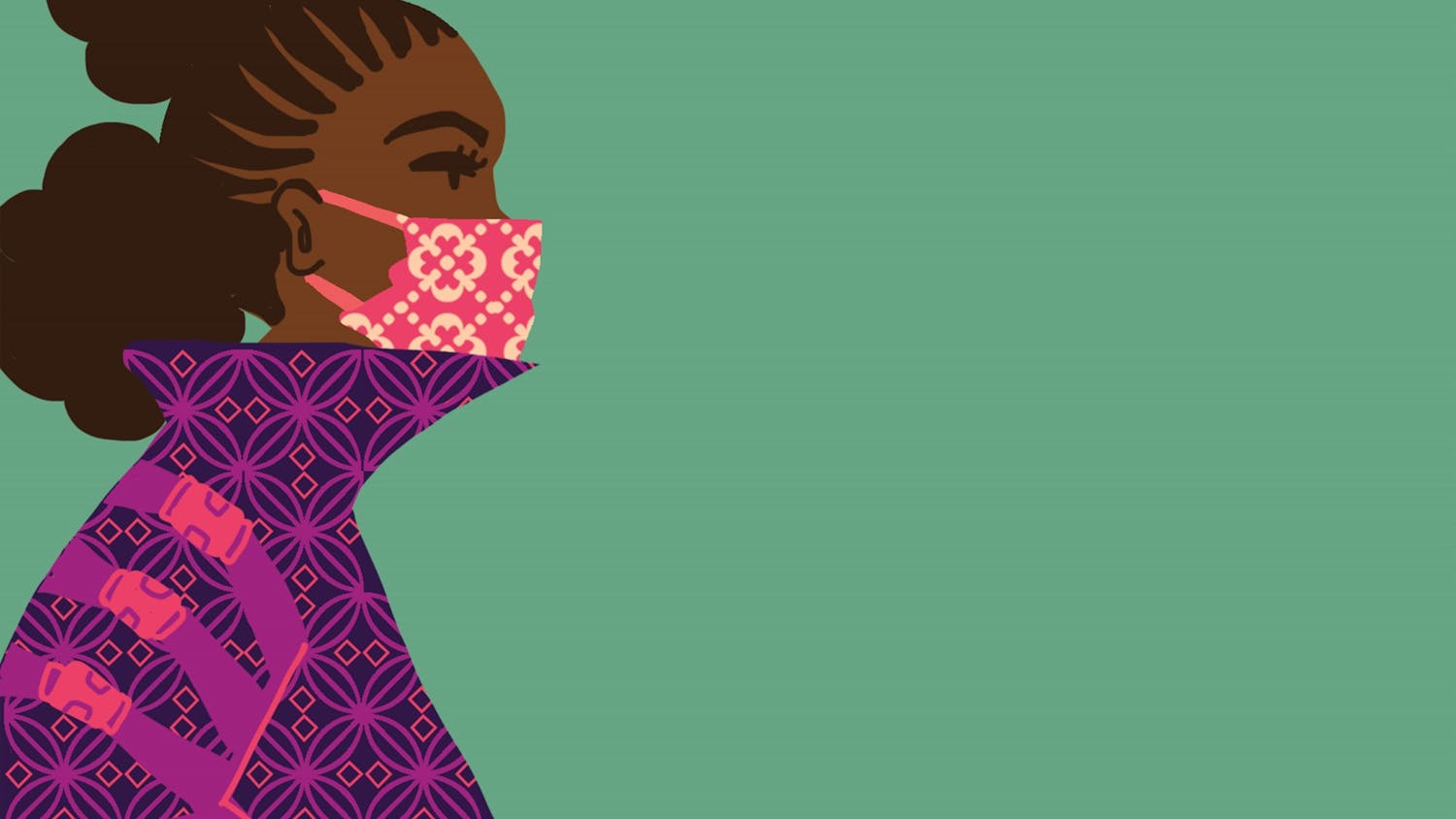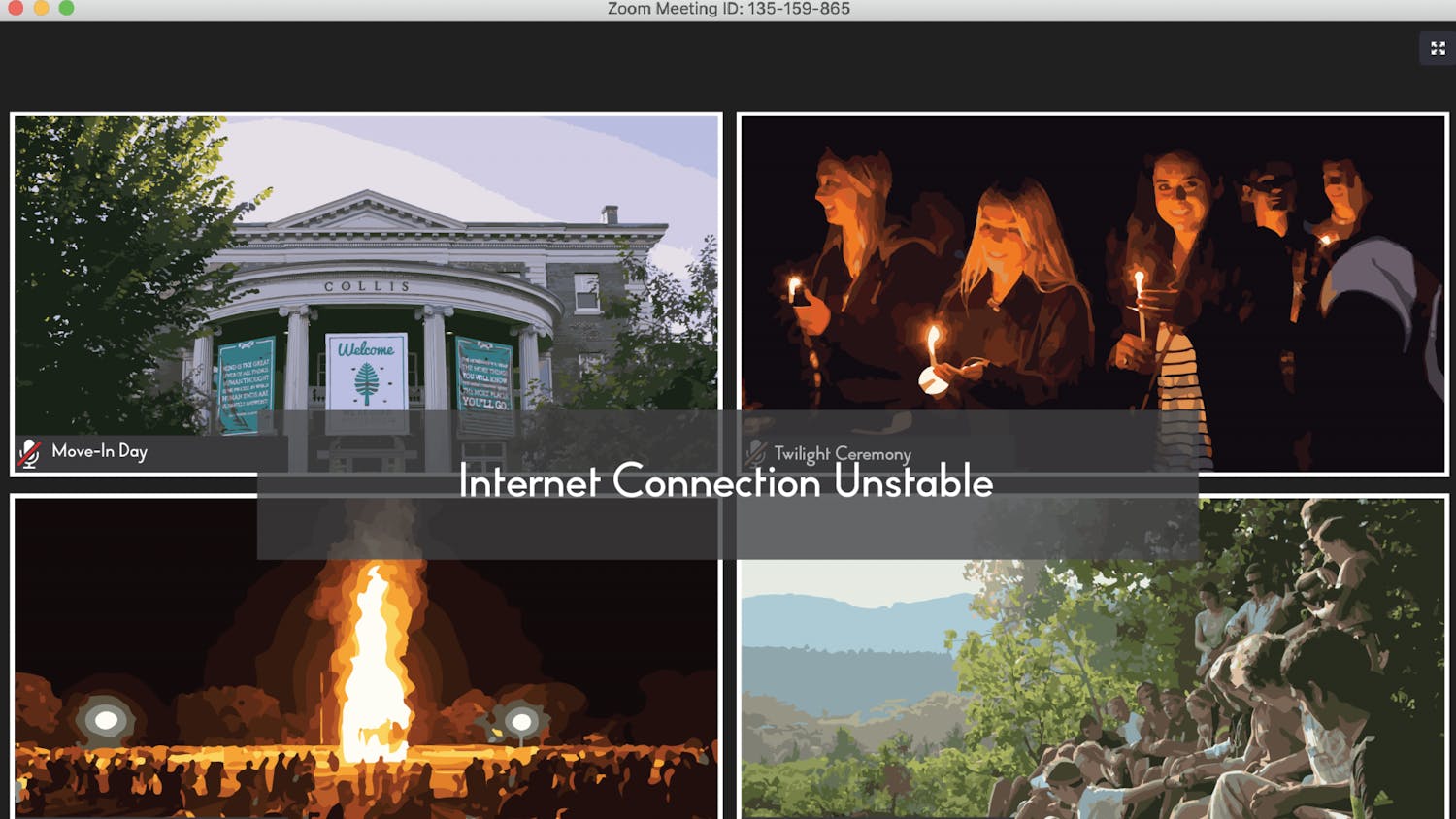This column is featured in the 2021 Spring special issue.
At the end of Orientation Week this past fall, the Class of 2024 participated in a virtual version of the Twilight Ceremony. Traditionally, this ceremony involves seniors lighting candles held by the assembled freshman class in a literal passing of the torch. This time, freshmen held a glowstick alone in their rooms while they watched a prerecorded video. Many other traditions were also diminished this year. Major events such as Homecoming and Green Key were virtually nonexistent on campus. When campus life resumes in the fall, the Class of 2022 will be the only class to have experienced an entire normal year at Dartmouth. As such, it will be the responsibility of every upperclassman, with the administration’s help, to make their younger counterparts a part of Dartmouth and to preserve that which makes the College on the Hill such a special place.
When the Class of 2025 arrives on campus in the fall, they will not be the only students in need of a proper orientation. The experiences that the soon-to-be sophomores will have missed out on range from significant ceremonies to the small everyday things which make campus life feel real. The vast majority of current freshmen have never taken an in-person Dartmouth class, experienced the mania of Green Key weekend, or even done something as small as order a chicken tender quesadilla from the Hop. Next year, three out of four classes will have never experienced a proper spring term. That leaves the Class of 2022 as the arbiters of campus culture — not only because they will be seniors, but also because they will be the only class with a full year of “normal Dartmouth” under their belts.
The distractions of life after Dartmouth, combined with the weighty academic responsibilities of senior year, may cause seniors to feel burned out. As they look ahead to the future, their focus may be on other matters. But for the good of the community that will inherit this college, they must take care to pass on Dartmouth’s traditions and cultural idiosyncrasies to the grades below them. Historic events such as Homecoming, Winter Carnival and Green Key, and the various rituals they involve, tend to dominate the conversation around traditions. But other customs that are more understated and personal, such as “bequests,” are equally meaningful. It falls to the seniors to ensure their relatively inexperienced successors participate in these rites of passage.
For its part, the College should recognize the best thing it can do when life resumes in the fall is to only involve itself where it is needed. One of the many gripes of those who were on campus this year was the moratorium on socializing imposed by the administration in order to curb opportunities for the virus to spread. Thanks in part to these strict regulations and increasing rates of vaccination among the student body, COVID-19 is now practically nonexistent on campus. However, after a year of living under restrictions, student goodwill towards the administration is similarly nonexistent. As students attempt to rebuild the community that once existed, the administration can demonstrate their solidarity by limiting their restrictive interference in this process and giving students the resources to make this community as vibrant as it once was. This would grant students leeway to make campus feel lively again.
Since students must get vaccinated if they wish to return to campus next year, in-person classes — which, I’ve argued, have been possible since the fall — must return. Given the Centers for Disease Control and Prevention’s latest announcement that vaccinated people can now shed their masks both indoors and outside, there is no reason to restrict socializing or in-person classes starting this summer. Additionally, proposed restrictions for the fall that would limit dining hall capacity and spread out seating are scientifically unsound. Letting students resume their old routines is the best way for Dartmouth to ensure the restoration of a normal campus culture.
Given that many landmark events were canceled or watered down this year, some traditions may need to be revised and improved to incorporate those who missed out on them. For example, given the lackluster nature of this year’s Twilight Ceremony, it would not be unreasonable to stage an expanded version of the ceremony in the fall. In fact, a ceremony involving all four classes lighting candles would be a worthy precursor to the unifying celebrations of Homecoming weekend. It will also drive home the literal significance of imparting each class’s wisdom, lest the old traditions fail and flicker out. Since the Class of 2024 has yet to walk around the Homecoming Bonfire and receive their proper welcome to the community, that is another tradition that should take place this fall. Finally, given the cancellations of the last two Green Key weekends, three classes on campus next year will have never experienced Green Key for themselves. Consequently, augmenting the Programming Board’s budget and hiring high-profile artists to compensate for this pent-up demand would provide a Green Key for the ages.
It may seem ironic that a freshman, who has no firsthand experience of many of the traditions mentioned above, is writing about the need to preserve them. But students frequently cite the nearly tangible sense of community that they felt on their campus tours as one of the main reasons for coming to Dartmouth. The traditions and cultural idiosyncrasies peculiar to Dartmouth are why its community has thrived for so long and continues to attract new students to campus. While that community was somewhat dormant this year, it is by no means dead. Come fall, it is incumbent on every student — but especially members of the Class of 2022 — to do their part to reawaken it. A student body that is indifferent towards its traditions is sure to lose them, along with what sets Dartmouth apart.
Thomas de Wolff '24 is from St. Louis, Missouri, and is majoring in History and French. He currently serves as opinion editor and as a member of the Editorial Board, and has written for the opinion section in the past. Outside of The Dartmouth, Thomas enjoys playing guitar, reading, and learning to juggle.



